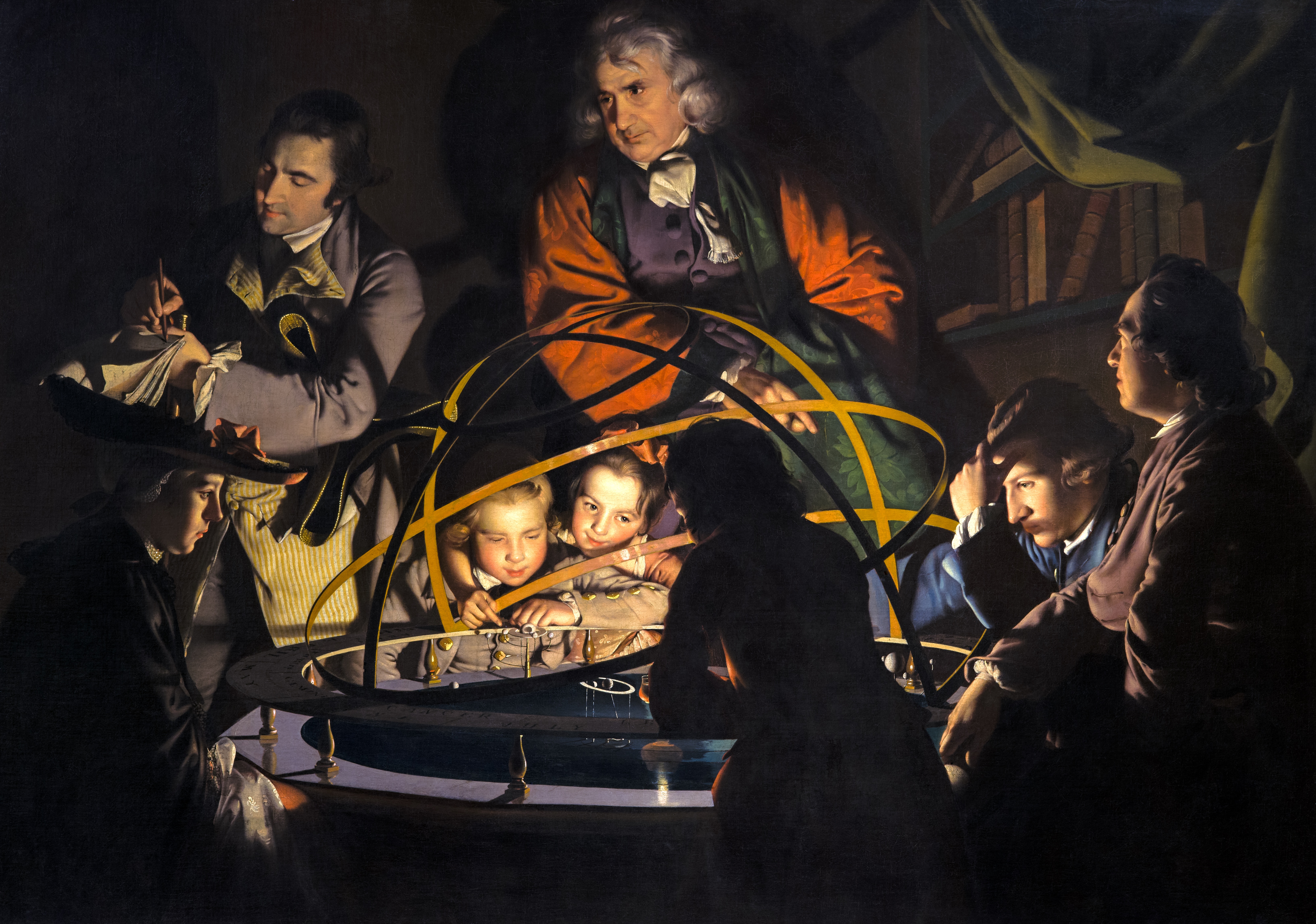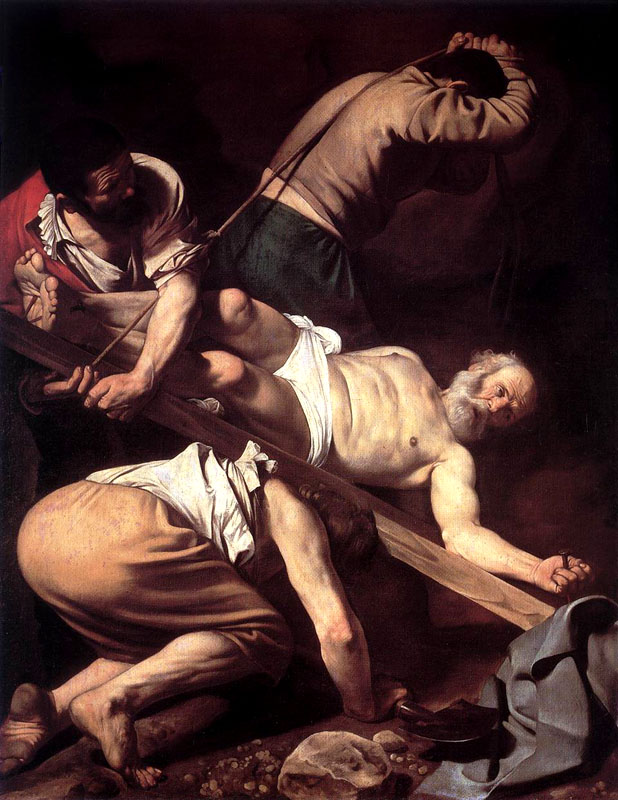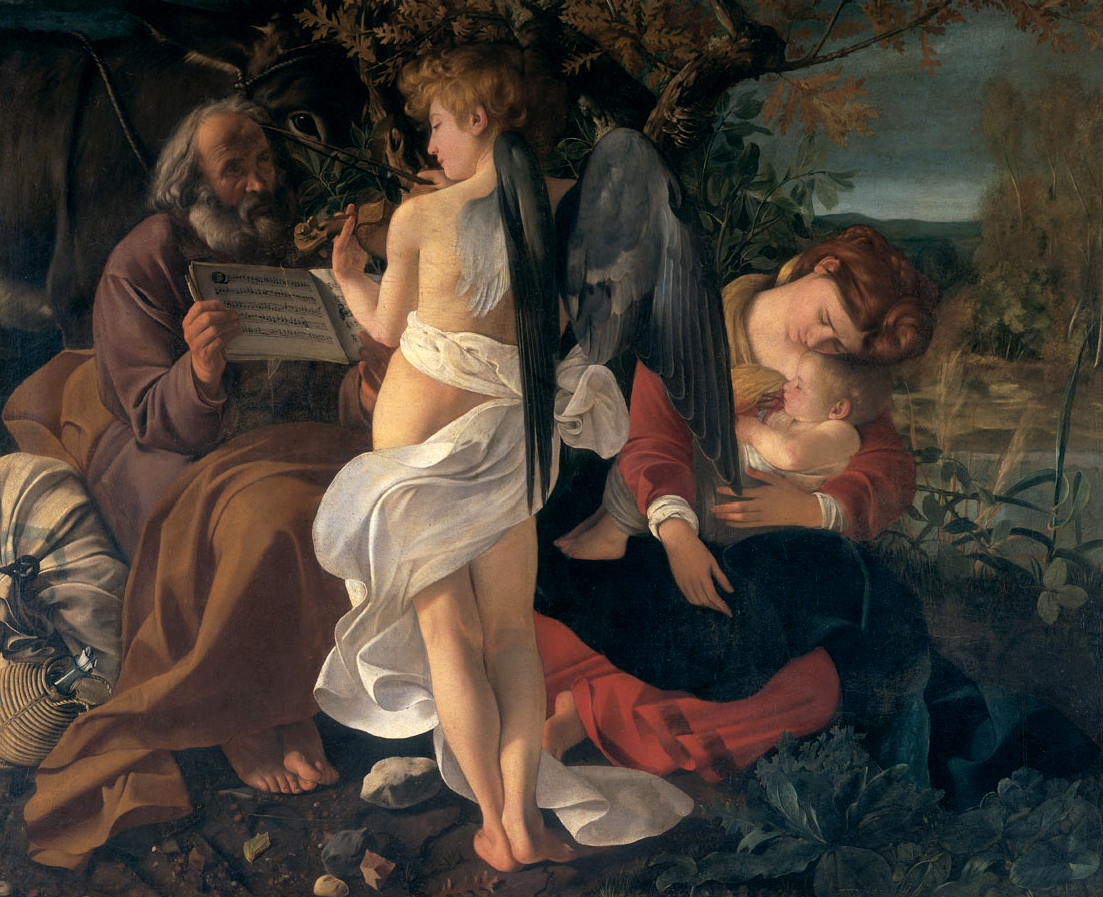Book 3: Chapter 2
2. Stage plays also captivated me, with their sights full of the images of my own miseries: fuel for my own fire. Now, why does a man like to be made sad by viewing doleful and tragic scenes, which he himself could not by any means endure? Yet, as a spectator, he wishes to experience from them a sense of grief, and in this very sense of grief his pleasure consists. What is this but wretched madness? For a man is more affected by these actions the more he is spuriously involved in these affections. Now, if he should suffer them in his own person, it is the custom to call this "misery." But when he suffers with another, then it is called "compassion." But what kind of compassion is it that arises from viewing fictitious and unreal sufferings? The spectator is not expected to aid the sufferer but merely to grieve for him. And the more he grieves the more he applauds the actor of these fictions. If the misfortunes of the characters -- whether historical or entirely imaginary -- are represented so as not to touch the feelings of the spectator, he goes away disgusted and complaining. But if his feelings are deeply touched, he sits it out attentively, and sheds tears of joy.
3. Tears and sorrow, then, are loved. Surely every man desires to be joyful. And, though no one is willingly miserable, one may, nevertheless, be pleased to be merciful so that we love their sorrows because without them we should have nothing to pity. This also springs from that same vein of friendship. But whither does it go? Whither does it flow? Why does it run into that torrent of pitch which seethes forth those huge tides of loathsome lusts in which it is changed and altered past recognition, being diverted and corrupted from its celestial purity by its own will? Shall, then, compassion be repudiated? By no means! Let us, however, love the sorrows of others. But let us beware of uncleanness, O my soul, under the protection of my God, the God of our fathers, who is to be praised and exalted -- let us beware of uncleanness. I have not yet ceased to have compassion. But in those days in the theaters I sympathized with lovers when they sinfully enjoyed one another, although this was done fictitiously in the play. And when they lost one another, I grieved with them, as if pitying them, and yet had delight in both grief and pity. Nowadays I feel much more pity for one who delights in his wickedness than for one who counts himself unfortunate because he fails to obtain some harmful pleasure or suffers the loss of some miserable felicity. This, surely, is the truer compassion, but the sorrow I feel in it has no delight for me. For although he that grieves with the unhappy should be commended for his work of love, yet he who has the power of real compassion would still prefer that there be nothing for him to grieve about. For if good will were to be ill will -- which it cannot be -- only then could he who is truly and sincerely compassionate wish that there were some unhappy people so that he might commiserate them. Some grief may then be justified, but none of it loved. Thus it is that thou dost act, O Lord God, for thou lovest souls far more purely than we do and art more incorruptibly compassionate, although thou art never wounded by any sorrow. Now "who is sufficient for these things?"[59]
4. But at that time, in my wretchedness, I loved to grieve; and I sought for things to grieve about. In another man's misery, even though it was feigned and impersonated on the stage, that performance of the actor pleased me best and attracted me most powerfully which moved me to tears. What marvel then was it that an unhappy sheep, straying from thy flock and impatient of thy care, I became infected with a foul disease? This is the reason for my love of griefs: that they would not probe into me too deeply (for I did not love to suffer in myself such things as I loved to look at), and they were the sort of grief which came from hearing those fictions, which affected only the surface of my emotion. Still, just as if they had been poisoned fingernails, their scratching was followed by inflammation, swelling, putrefaction, and corruption. Such was my life! But was it life, O my God?
Husband, father, pastor, language learner, musician, and sinner saved by grace. So much to do, so little time.
Tuesday, May 20, 2008
Augustine on the Theatre, Compassion, & Grief
Monday, May 19, 2008
The Bible According to Caravaggio - Part 1
Regardless of my inability to see color, I do know what I like, and I just can't get enough of the art of Michelangelo Merisi da Caravaggio. Here is some background information from Wikipedia:
Michelangelo Merisi da Caravaggio (September 28, 1571 – 18 July 1610) was an Italian artist active in Rome, Naples, Malta and Sicily between 1593 and 1610. He is commonly placed in the Baroque school, of which he was the first great representative...Huge new churches and palazzi were being built in Rome in the decades of the late 16th and early 17th centuries, and paintings were needed to fill them. The Counter-Reformation Church searched for authentic religious art with which to counter the threat of Protestantism, and for this task the artificial conventions of Mannerism, which had ruled art for almost a century, no longer seemed adequate. Caravaggio's novelty was a radical naturalism which combined close physical observation with a dramatic, even theatrical, approach to chiaroscuro, the use of light and shadow.
For reference, the first painting below is known as Mannerism, and the second is Naturalism with the use of Chiaroscuro:
Rosso Fiorentino: Moses Defending the Daughters of Jethro
Joseph Wright of Derby: A Philosopher Giving that Lecture on the Orrery, in which a Lamp is put in place of the Sun
What draws me to the art of Caravaggio is the atmosphere that he is able to create, and the story that he tells so richly from just one moment in time. I wanted to use this post to look into his take on biblical subjects, not only to appreciate his ability, but also to see if he really does capture each scene correctly.
Crucifixion of St. Peter
Well, we really don't have a biblical record of Peter being crucified upside-down. However, we do have a reference to his death from Eusebius' Ecclesiastical History which states, "Peter appears to have preached through Pontus, Galatia, Bithynia, Cappadocia, and Asia, to the Jews that were scattered abroad; who also, finally coming to Rome, was crucified with his head downward, having requested of himself to suffer in this way" (Ecclesiastical History 3:1). Regardless, this is an incredible piece of art.
Martha and Mary
The story of Martha and Mary is taken from Luke 10:38-42:
Now as they went on their way, Jesus entered a village. And a woman named Martha welcomed him into her house. And she had a sister called Mary, who sat at the Lord's feet and listened to his teaching. But Martha was distracted with much serving. And she went up to him and said, “Lord, do you not care that my sister has left me to serve alone? Tell her then to help me.” But the Lord answered her, “Martha, Martha, you are anxious and troubled about many things, but one thing is necessary. Mary has chosen the good portion, which will not be taken away from her.”
I don't think that Caravaggio captured this very well at all. In fact, being the ignorant art lover that I am, I didn't see the connection at all. However, I found this explanation on Wikipedia that partially cleared things up:
The painting shows the Biblical sisters Martha and Mary Magdalene - Martha is in the act of converting Mary from her life of pleasure to the life of virtue in Christ. Martha, her face shadowed, leans forward, passionately arguing with Mary, who twirls an orange blossom between her fingers as she holds a mirror, symbolising the vanity she is about to give up. The power of the image lies in Mary's face, caught at the moment when conversion begins.
I'll let you be the judge of this one, but I find it to be a little bit of a departure from the biblical text.
The Sacrifice of Isaac
Here is the biblical reference, Genesis 22:9-13:
When they came to the place of which God had told him, Abraham built the altar there and laid the wood in order and bound Isaac his son and laid him on the altar, on top of the wood. Then Abraham reached out his hand and took the knife to slaughter his son. But the angel of the Lord called to him from heaven and said, “Abraham, Abraham!” And he said, “Here am I.” He said, “Do not lay your hand on the boy or do anything to him, for now I know that you fear God, seeing you have not withheld your son, your only son, from me.” And Abraham lifted up his eyes and looked, and behold, behind him was a ram, caught in a thicket by his horns. And Abraham went and took the ram and offered it up as a burnt offering instead of his son.
I really like this one. I am not going to lie. Everything appears to be there: Abraham, Isaac, the altar, an angel, the ram, the knife. The houses in the background seem a little out of place and a little modern (for the time). The angel also has the typical "youthful" look that is common in most art, yet I doubt heavenly angels really look like that. They are probably a little more intimidating.
Let's look at one more today.
Rest on the Flight into Egypt
So here we have Mary, Joseph, Jesus, and a half naked angel playing the violin. Let's see what Matthew 2:13-15 says:
Now when they had departed, behold, an angel of the Lord appeared to Joseph in a dream and said, “Rise, take the child and his mother, and flee to Egypt, and remain there until I tell you, for Herod is about to search for the child, to destroy him.” And he rose and took the child and his mother by night and departed to Egypt and remained there until the death of Herod. This was to fulfill what the Lord had spoken by the prophet, “Out of Egypt I called my son.”
Right. Good thing Joseph is holding the angel's music or this would be totally inaccurate...At this point you are all wondering why I like Caravaggio so much when he gets so many things wrong. Well, I didn't say I appreciated ALL of his art, and some of the best paintings are yet to come.
Caravaggio's ability with a brush is impressive, but I think we can all see that textual accuracy was not the priority. Things do get better, I promise. Until next time...
Wednesday, May 14, 2008
According to the Times: C.H. Spurgeon 1858
January 15th, 1858
July 21st, 1858
November 19th, 1858
Tuesday, May 13, 2008
A Christian's First Song
After a delicious bowl of cereal, we drove around for awhile and then grabbed lunch at PF Changs, which was again, delicious. Now when we got back to the house I decided to ravage through my old bedroom closet for any fun toys that I could take back. You see, when Erin is not with me I can take anything I want. She is the wiser one of us, so without her voice of reason I grabbed some dumb things that I will probably never use, but the nostalgic quality is high so that is how I will justify what I brought back home. I found a marionette/puppet thing that I thought Jonah (my son) would enjoy, but in all reality it will probably scare his little pants off. I found some old computer games that a friend at church and I were discussing weeks ago that will probably just turn to dust in my modern computer. I also did what every son does, I grabbed some of my dad's old clothes.
On my way out the door I decided to look one last place for any old stuff that I absolutely "needed" to take home. Providentially, I found something that I had almost entirely forgotten about. I found a recording of the song I wrote the day after I was brought from death to life. Amazing.
It is funny to hear myself all those years ago, but more importantly it is a powerful reminder of the power of God to change a sinner's heart. I would not have said any of things I said in this song a week before my salvation. So, as a fun treat I thought I would let you all hear the first song I ever wrote as a child of Christ. Enjoy! ( Oh yeah, and don't expect perfection or anything...this recording was almost 7 years ago)
Monday, May 12, 2008
Augustine on The Deceitfulness of Sin vs. God's Perfection
For thus we see pride wearing the mask of high-spiritedness, although only thou, O God, art high above all. Ambition seeks honor and glory, whereas only thou shouldst be honored above all, and glorified forever. The powerful man seeks to be feared, because of his cruelty; but who ought really to be feared but God only? What can be forced away or withdrawn out of his power--when or where or whither or by whom? The enticements of the wanton claim the name of love; and yet nothing is more enticing than thy love, nor is anything loved more healthfully than thy truth, bright and beautiful above all. Curiosity prompts a desire for knowledge, whereas it is only thou who knowest all things supremely. Indeed, ignorance and foolishness themselves go masked under the names of simplicity and innocence; yet there is no being that has true simplicity like thine, and none is innocent as thou art. Thus it is by a sinner's own deeds he is himself harmed. Human sloth pretends to long for rest, but what sure rest is there save in the Lord? Luxury would fain be called plenty and abundance; but thou art the fullness and unfailing abundance of unfading joy. Prodigality presents a show of liberality; but thou art the most lavish giver of all good things. Covetousness desires to possess much, bu thou art already the possessor of all things. Envy contends that its aim is for excellence; but what is so excellent as thou? Anger seeks revenge; but who avenges more justly than thou? Fear recoils at the unfamiliar and the sudden changes which threaten things beloved, and is wary for its own security; but what can happen that is unfamiliar or sudden to thee? Or who can deprive thee of what thou lovest? Where, really, is there unshaken security, save with thee? Grief languishes for things lost in which desire had taken delight, because it wills to have nothing taken from it, just as nothing can be taken from thee. (B2.CH6.S13)








